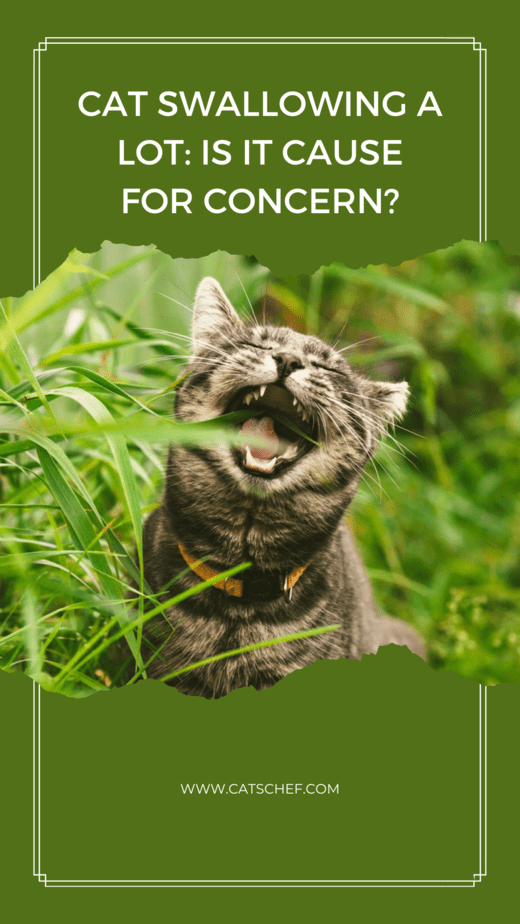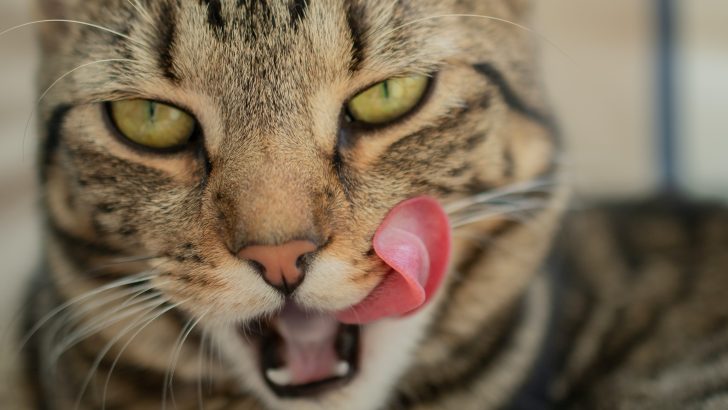With their never-ending appetites, our kitties seem like they’re always munching on something. But what if you notice your cat swallowing a lot more than usual, even when she’s not eating? If you spot this in your feline, it’s important to monitor her to see if she’s showing any other symptoms.
Excessive swallowing doesn’t necessarily mean anything serious, and it’s usually a common symptom of nausea in cats. However, if it’s accompanied by other changes such as gagging, coughing, or gulping, it could be an indicator of a more serious health issue.
Don’t worry, it’s usually a common sign of things every kitty deals with, such as hairballs or simple nausea. However, if it continues for quite some time, it’s always a good idea to speak to the vet and get a professional opinion.
If your cat’s been swallowing and gulping a lot, while also eating less, you’re not alone in this. Many cat parents have gone through the same thing, as it’s a common occurrence among kitties. Don’t let your first reaction be panic.
I know, it’s kind of heartbreaking seeing your furbaby trying so hard to swallow. You’re always wondering what you can do to help her, which is why you’re probably here. And it’s good that you are. Together, we’ll go through possible reasons why your cat is swallowing a lot, as well as how you can help her.
Possible reasons your cat is swallowing a lot
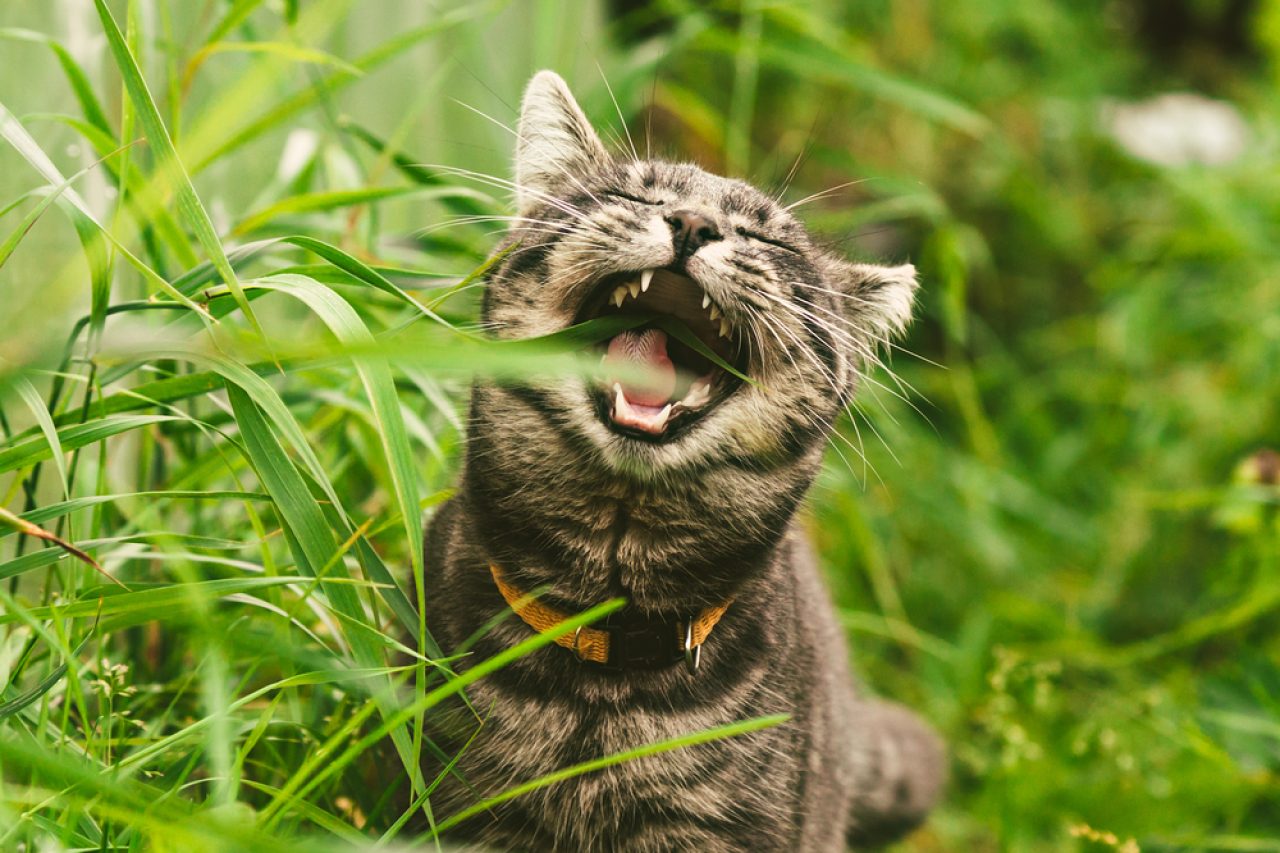
Although it could be an indicator of an underlying medical issue, excessive swallowing in cats usually isn’t anything serious. Often, it’s simply because they’re trying to get rid of the hair from their mouth, or because they feel nauseous.
However, it’s still a good thing to rule out any possible health issues that excessive swallowing could be a sign of. Here are four possible reasons your cat might be acting like this lately.
1. She’s trying to get rid of hairballs
We all love our kitties, but we know how annoying it can be to see their fur EVERYWHERE. They shed a lot, especially in spring and fall. Another thing cats do a lot is cleaning. They’re clean freaks and they lick their fur any chance they get.
Because of that, it’s only natural that some fur gets in their mouth. If your cat’s been gagging and swallowing a lot during grooming, it could be simply because she’s got hairballs building up inside her throat. Cats swallow a lot of hair when they’re grooming, and their stomach doesn’t want to put up with that.
Because hair isn’t really their body’s favorite food on the menu, it’ll eventually come out. That’s why your kitty might start gagging, swallowing, and coughing to try and get it out and relieve the dryness it causes.
Sometimes, the only way they can get rid of it is by vomiting it out. As a cat parent, I’m sure you’ve experienced this before. It’s never a nice sight to see, but it usually helps your feline feel a lot better. It shouldn’t be a cause for concern – it’s a pretty normal thing for all cats, so don’t worry.
However, it’s important that the hairballs eventually do come out, whether it’s by coughing or vomiting. If they don’t, they could cause blockages in the digestive system. If coughing doesn’t help, chewing on grass might, as it usually helps cats vomit.
2. She’s probably just nauseous
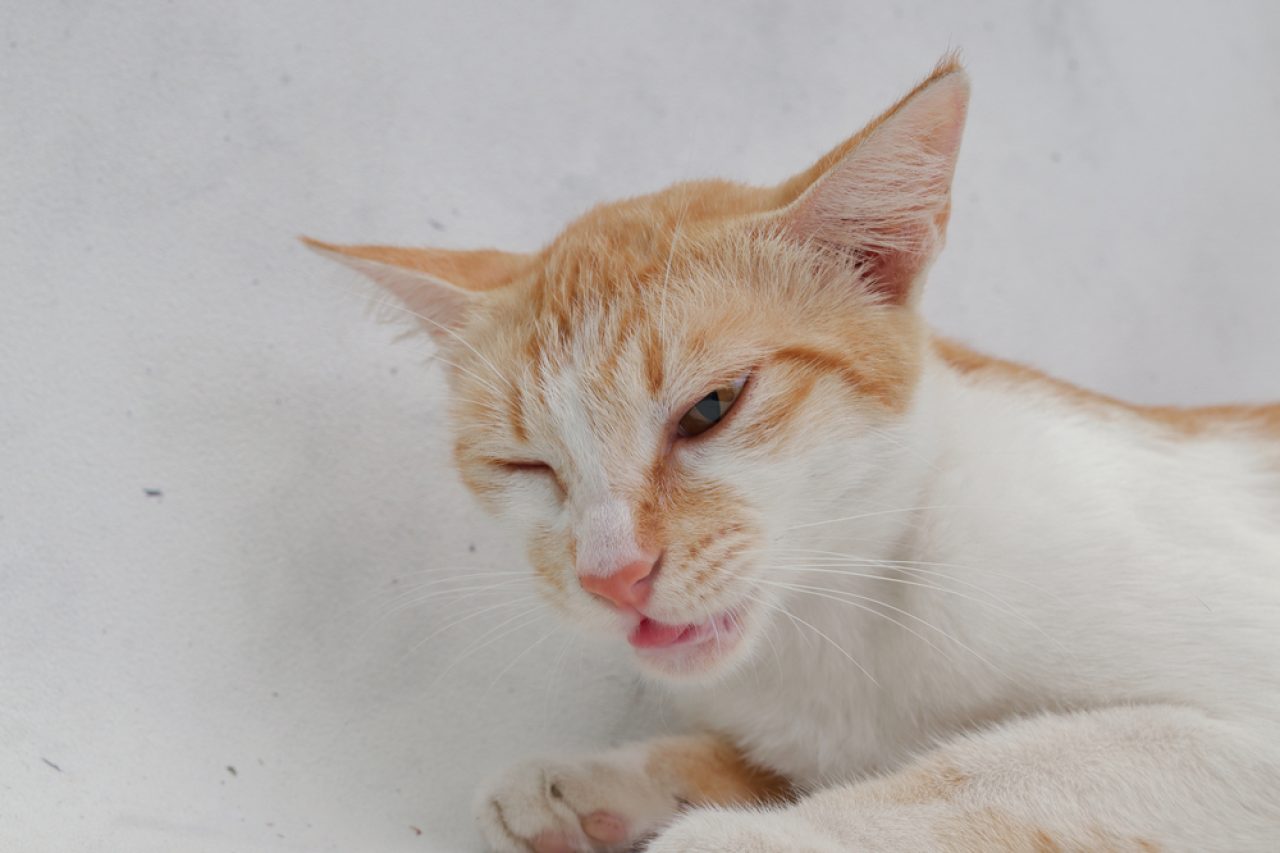
Besides furballs, another pretty common reason your cat might be swallowing a lot is that she’s feeling nauseous. Think about it: What’s the first symptom you get when you’re nauseous and about to throw up? Excess saliva. And what do you do to get rid of it? You swallow. Well, it’s the same with cats.
Before your cat throws up, you may notice her swallowing, drooling, and smacking her lips. All of these are her body’s reactions to the feeling of nausea. It’s nothing to worry about. There could be many reasons your kitty’s feeling nauseous, and it’s usually nothing serious or worth stressing about.
3. She might be suffering from feline asthma
We’re not the only ones who can suffer from asthma. Unfortunately, our feline friends can experience this, too. However, because it’s often mistaken for hairball coughing, a lot of times, asthma in cats goes unnoticed.
The good news is feline asthma is quite rare, affecting only 1-5% of cats. It’s usually an allergic reaction to something in your cat’s environment. When your kitty’s immune system releases antibodies to fight the allergens, they sometimes cause asthma.
Some other causes of this condition in cats include aerosol sprays, big changes in weather conditions, and even emotional stress. Because symptoms of an asthma attack include wheezing, gagging, and coughing, cat parents often mistake it as their furbaby trying to get a hairball out of her system.
4. Excessive swallowing as a symptom of dysphagia
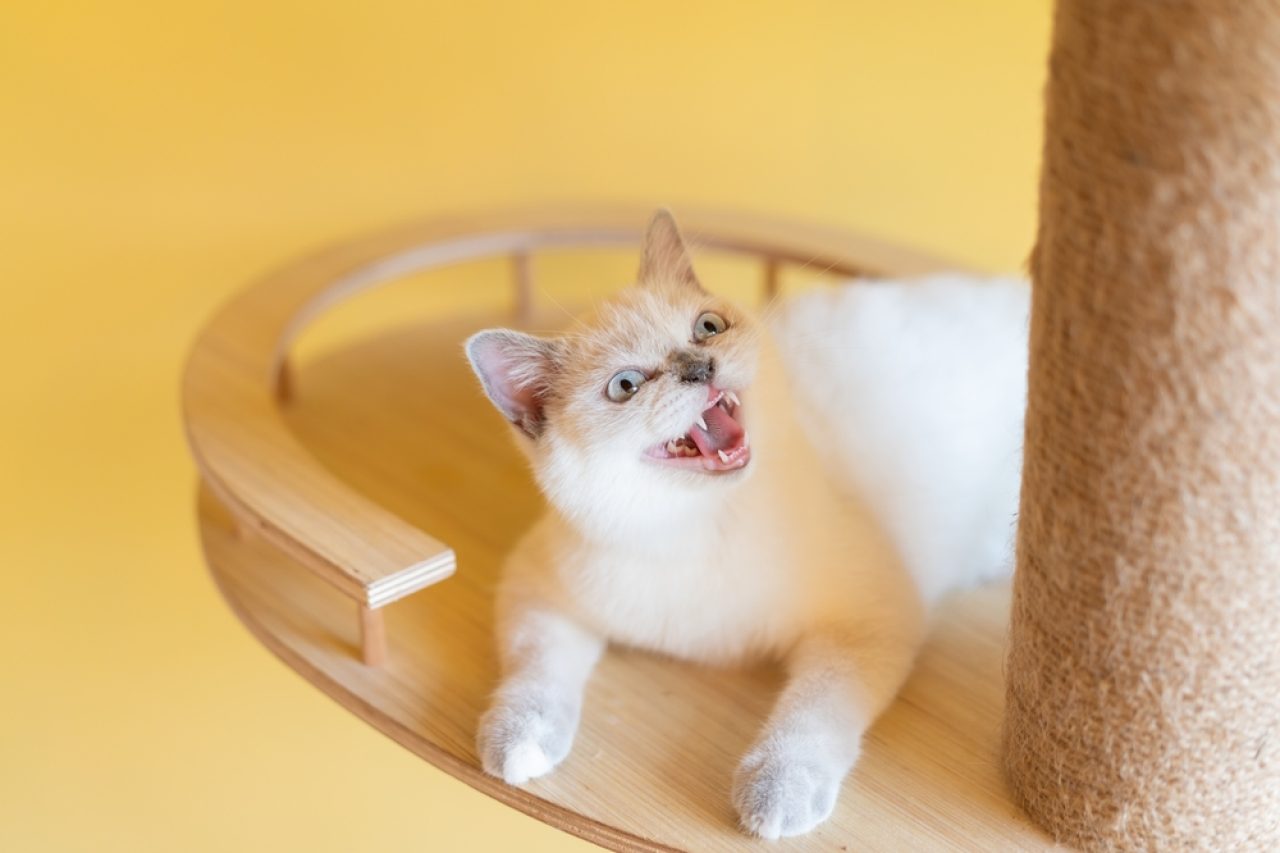
Lastly, excessive swallowing is one of the main symptoms of a condition called dysphagia. This medical condition can have many causes, which is why it’s crucial to take your feline to the vet as soon as you notice excessive swallowing that’s been going on for a few days.
Feline dysphagia is a quite serious medical condition that affects the muscles in control of swallowing, chewing, and pushing down food. Although many things can cause it, some of the most common ones are dental disease complications, such as infections.
Other causes include temporary paralysis of the jaw, foreign bodies stuck in your feline’s mouth, cleft palate, jaw fractures, mouth injuries, and tumors. All of these are hard to diagnose on your own, which is why it’s essential that a professional examine your cat.
Other common symptoms of dysphagia
Albeit a common one, excessive swallowing isn’t the only symptom of feline dysphagia. If you catch your cat swallowing a lot, it’s important to look for other symptoms of dysphagia so that you can start helping your furbaby as soon as possible.
If your cat’s dealing with this medical condition, she’ll start trying to open her mouth and hold things in it, as well as collect food on the sides. You might also notice a change in her appetite, an unpleasant odor coming from her mouth, and excessive salivation with blood in it.
A runny nose, coughing, losing weight, and leaning on her head while eating might all be signs that your kitty’s dealing with dysphagia. All of these are pretty easy to spot, so don’t worry. If your feline isn’t showing any of these symptoms besides excess swallowing, she’s probably not dealing with this medical condition.
However, if you notice even one of these symptoms together with your cat swallowing a lot, we highly advise you to take her to the vet. They’ll run all the necessary tests on her to determine whether or not your kitty is suffering from dysphagia and why she’s been swallowing a lot lately.
How to treat dysphagia
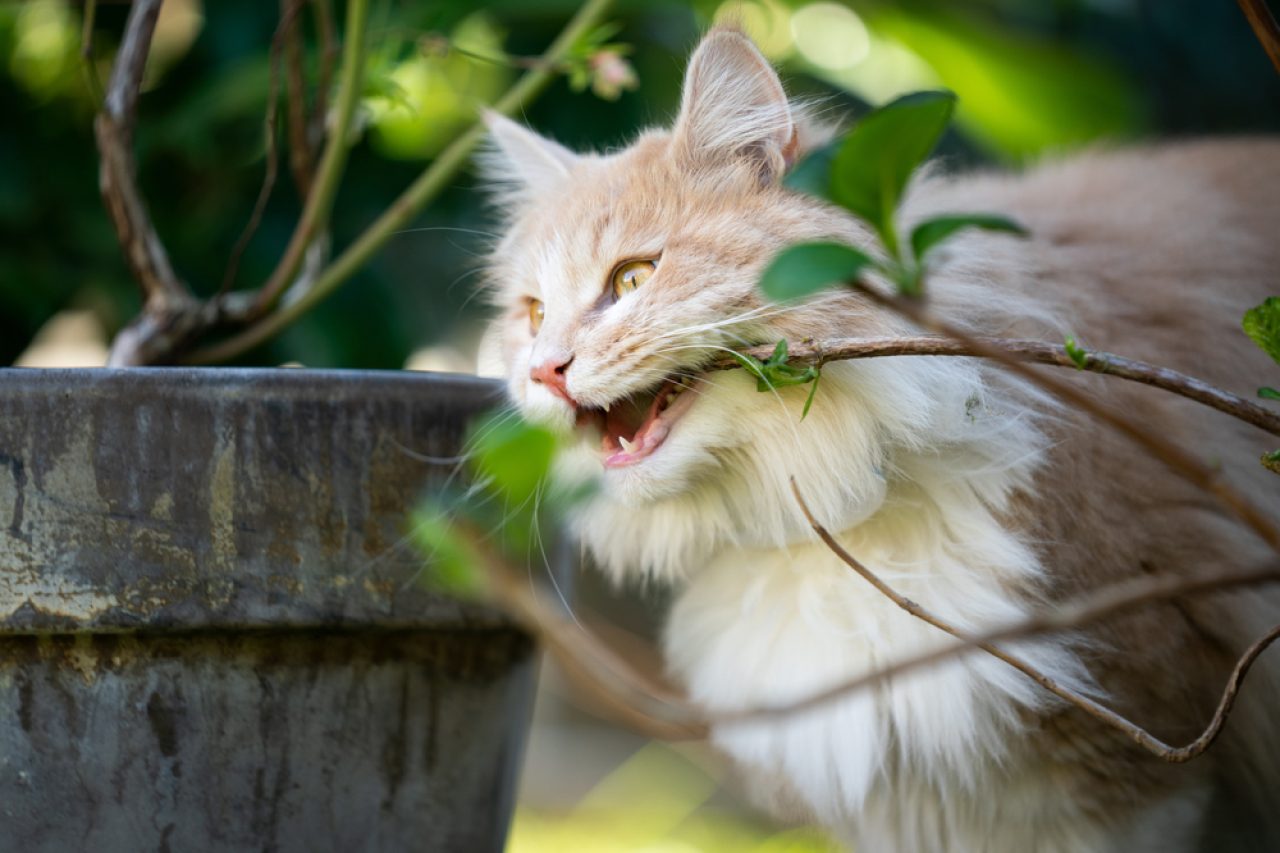
If the vet suspects the reason for your cat’s excessive swallowing is dysphagia, they may do some diagnostic testing such as urinalysis, X-rays, and blood work.
The treatment of dysphagia usually varies on its cause and severity. While the root of the problem is taken care of, cats often require some supportive care, such as nutritional support, antibiotics, or some specific treatments, such as surgical correction.
On top of that, how you care for your feline is also of huge importance. If your kitty’s suffering from dysphagia, you have to pay a lot of attention to her eating habits. She will likely be prescribed certain dietary recommendations and/or medications to help her feel better.
Make sure to take your feline friend to the vet regularly, so that they can monitor her healing. Another thing that can help her feel a lot better is finding a way to help her eat. Your vet can give you advice on how you can make your kitty feel more comfortable eating.
That way, she’ll get enough food and nutrition to help her get better. It’s important to try and keep your kitty’s weight normal and provide nutritional supplements. With the right care and enough patience, your little furkid will be back on her feet in no time!
